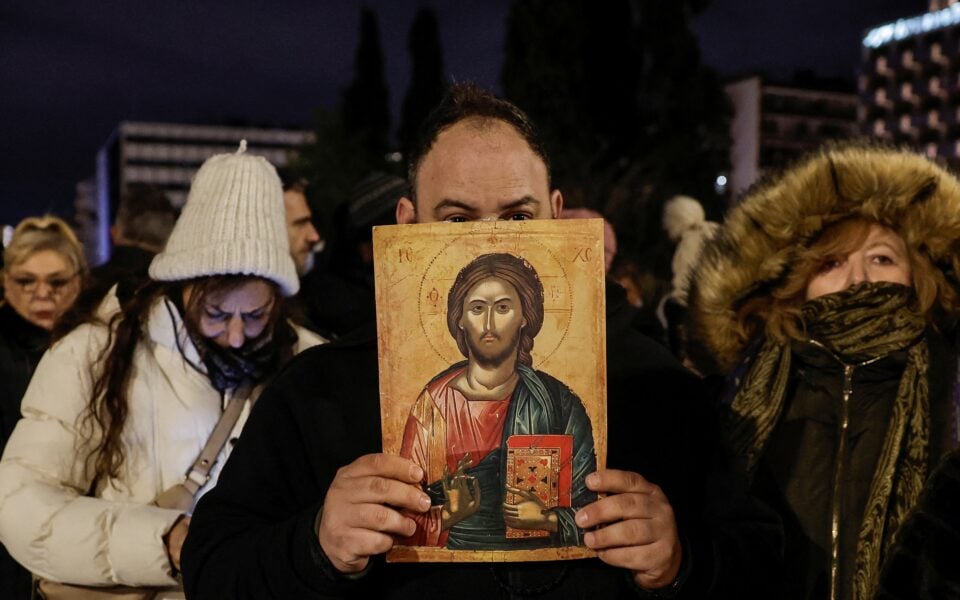
A protester holds up a holy icon during a protest against a bill legalizing same-sex marriage and recognizing the children of gay couples, in Athens, on January 21. [Louisa Gouliamaki/Reuters]
There’s been a rise in homophobic attacks in recent months, such as those in downtown Athens’ Zappeio, Pedion tou Areos and Kerameikos. These tend to start with insults hurled from a distance, followed by an ambush in a secluded corner. They are also invariably carried out by more than one person.
A 65-year-old man was arrested in connection with such an attack, while authorities are still looking for his much younger accomplice. They beat up a 27-year-old man in broad daylight, breaking his shoulder. Thankfully the victim found the courage to report them.
A man who recently completed his gender transition had to put up a fight at a regional hospital where they insisted on putting him in a ward for women because his identification card named him as Maria. There was no privacy when his medical history was being taken down and he was getting nasty looks from the other patients, so he refrained from divulging details about the hormones he had taken. That adversely affected his treatment because the doctors didn’t have all the information they needed, and he found it impossible to ignore all the eyes turned on him.
Meanwhile, a hearing at the country’s highest administrative court, the Council of State, regarding a motion by three associations demanding that marriage equality be ruled unconstitutional was postponed last Friday. It is unlikely the demand will be upheld, but the associations will certainly continue to wage their campaign. What is it that has them in such a bother? That same-sex marriage, the claim, poses a threat to the institution of the traditional family. And this is when Greece hasn’t had a single adoption by a same-sex couple yet. Only parents of children born abroad have managed to get them recognized as such so far. There is a lot of demand for legal recognition, but the process is torturously slow as a result of understaffed social services and delays in judicial procedures. Adoption for heterosexual couples is also hard, some will argue. They forget that in the case of same-sex couples, the children already live with their parents, they all constitute a family already, but they don’t have the same rights as other families.
Emmanuel Darley has written a brilliant monologue called “Le Mardi a Monoprix” (“Tuesdays at Tesco’s,” in English) about Marie-Pierre who was born Pierre. She visits her elderly father once a week to tidy up his home and take him shopping, bearing the neighbors’ spiteful whispers and her father’s insistence to stand at a distance from her in public in order to demonstrate his disapproval.
The play is on stage in Athens now and the actor who plays Marie-Pierre, Phaidon Kastris, often struggles to contain his tears during the performance, as do most of the people in the audience. Especially at the end of the show in a small theater in the downtown Pangrati neighborhood, when Marie-Pierre is running away from the aggressive curiosity and morbid pity of the people around her.